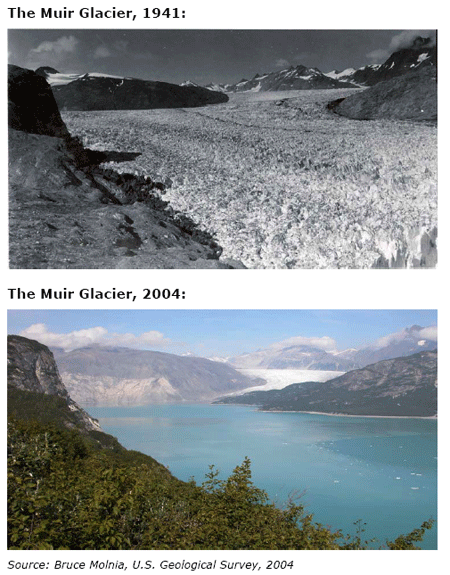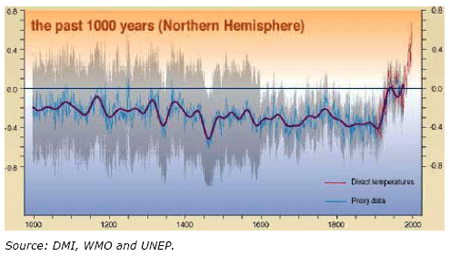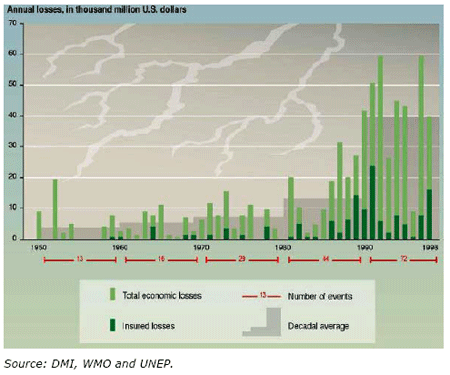Get the latest financial news, insights and expert analysis from our award-winning MoneyWeek team, to help you understand what really matters when it comes to your finances.
You are now subscribed
Your newsletter sign-up was successful
Want to add more newsletters?

Twice daily
MoneyWeek
Get the latest financial news, insights and expert analysis from our award-winning MoneyWeek team, to help you understand what really matters when it comes to your finances.

Four times a week
Look After My Bills
Sign up to our free money-saving newsletter, filled with the latest news and expert advice to help you find the best tips and deals for managing your bills. Start saving today!
One of my favourite stories at the moment is the one about Prince Charles when, earlier this year, he proudly declared that, for the sake of the environment, he was going to cancel his annual ski trip to Klosters this year. After all, he said, the future of our planet is more important than the joy I get out of a week on skis.
Now, if you think that spin doctors are a profession reserved for politicians, think again. The stark reality is that Klosters had about the worst skiing conditions they have experienced for at least a generation. In fact, they had no snow. What amazes me, though, is that every single newspaper up and down the land praised the Prince for his environmental conscience. No paper not one - stood up and told the truth. And that is what this month's letter is about. Global warming is no longer "just" an item on the political agenda. For many people it has become an ideology. For some even a religion. For that reason it is not unreasonable to expect it to have a rather dramatic effect on the investment landscape for years to come. More about that later.
Climate change: evidence of global warming
Let's begin with a bit of recent history. About an hour's drive north of Dunedin on the South Island of New Zealand is a lovely little fishing village called Moeraki. In the village, by the old jetty, is a unique restaurant called Fleur's Place. Not many restaurants will be able to serve you better fish than Fleur and her team manage to do. A couple of months ago, eaters in this wonderful seaside restaurant could eat their crayfish ravioli while watching an iceberg about 3km long pass by on its way north. For the benefit of non-locals, Moeraki is positioned between 45 and 46 south. Compare that to Bordeaux which is about 45 north. How many icebergs have you spotted in Bordeaux recently?
MoneyWeek
Subscribe to MoneyWeek today and get your first six magazine issues absolutely FREE

Sign up to Money Morning
Don't miss the latest investment and personal finances news, market analysis, plus money-saving tips with our free twice-daily newsletter
Don't miss the latest investment and personal finances news, market analysis, plus money-saving tips with our free twice-daily newsletter
The climate is changing. No question about it. If you expect us to argue differently, this article will disappoint you. For those of you still not convinced, take a look at the pictures overleaf. The two pictures illustrate the Muir Glacier in Alaska, taken from the exact same position but about 60 years apart. Spotting the difference won't win you a Nobel Prize I'm afraid.

Let there be no doubt. We are absolutely in favour of attempting to curb the emission of greenhouse gasses; however, during my research for this article I have found numerous pieces of evidence to suggest that we are, in fact, dealing with a climate system far more complex than that which first meets the eye.
Climate change: should you listen to the doomsayers?
Yes, the globe is warming in many places, but try telling that to the people of Newfoundland who have just experienced the most brutal, cold winter for four decades. The waters around Newfoundland remain frozen in the first week of May, which is highly unusual. Why do the scientists not tell us that some places on the planet are actually experiencing the reverse of global warming?
Unquestionably, many parts of the earth are currently experiencing severe drought; yet, other parts of the globe have seen a significant increase in precipitation in recent years. Why don't they tell us that either?
Average temperatures have indeed risen since about 1980 as illustrated in chart 1 below. Yet I vividly remember my teenage days in the 1970s when most newspapers ran stories about the forthcoming ice age. Obviously, that story doesn't sell papers anymore, but are memories really that short?
Chart 1: Departures in Temperatures in C (from the 1961-1990 average)

Finally, despite all the bad press it receives, CO2 happens to be a building block for plant growth and acts as a virtual fertiliser. A temperature increase to the magnitude of 2-3 degrees Celsius in temperate climates will actually cause an increase in crop yields. This fact is relevant to the debate but goes unreported.
These and many other questions are left unanswered because it is not considered politically correct to question the global warming theory. The point broadly missed, however, is that even if we manage to dramatically reduce CO2 emissions, the climate will continue to change as it always has done, and always will.
Climate change: investment implications
At the moment, all the momentum is with the doomsayers - so much so that the climate debate is at risk of turning into a debate for or against capitalism. And that poses a considerable risk to the stock market longer term.
Auto stocks
A good example is the auto industry (not that we feel particularly sympathetic towards car manufacturers they have had many opportunities over the years to produce more ecofriendly cars). The European Commission seems to be set on implementing very onerous CO2 emission limits by 2012. So onerous, in fact, that virtually all cars produced today will fail to meet the new standards. Since most of the profits in the car industry are generated from the bigger and more expensive cars (which also happen to be the cars which are least likely to meet the new CO2 limits), the proposal from Brussels is potentially devastating for car manufacturers. As a rule of thumb, stock markets do best when politicians do nothing. Intervention is poison and the new rules about to come down on the auto industry are probably a sign of things to come.
Renewable energy
Renewable energy, on the other hand, is the big winner so far at least. Investors can't get enough of it. We are not in the business of panning individual stocks, so we shall not mention any names here. Nevertheless, on the London Stock Exchange (and, I am sure, on many other exchanges around the world), there are renewable energy companies listed which are yet to ship their first product. The market values some of these companies in the billions not millions. Am I the only one thinking dot coms anno 1999 when I hear stories like this?
Water
Water is another big story for the next decade. The consensus view appears to be that nations will go to war over water not that many years from now. Maybe they will. In our book, the story is not quite so simple, though. If glaciers are melting at a record pace (and in some parts of the world they are), for a considerable period of time there will actually be more water than usual, although we recognise that this is not going to prevent droughts in some parts of the world. Also, we hear from a trusted source that water desalination technology is developing at a rapid pace. There is more to the water story than first meets the eye.
Uranium
Nuclear power is widely expected to enjoy a comeback. We agree. Probably the best way to participate in the projected growth of this industry is through uranium futures. However, if you look at uranium prices, you will be forgiven for thinking that you have arrived rather late to the party.
Carbon trading
Carbon trading could possibly become big business, but it is still early days and the volatility so far has turned a fair number of investors away (including us). Also, we have never had a huge appetite for investments which can be manipulated by governments at their leisure. Carbon trading started on the back of the Kyoto agreement. The basic idea is that you can sell your allowance of various different greenhouse gases if you don't fully utilise it. The buyer would typically be someone who hasn't met his targets. Hedge funds, being as entrepreneurial as ever, have identified a market in which they can act as the middleman. So far, the industry is quite small, but expect it to grow substantially over the next few years. If you have a stomach for volatility, this could possibly be a good long term investment. For the time being, we remain sidelined, though.
Climate change will boost weather-related insurance market
Finally, we expect the market for weather related insurance, including cat bonds, to grow dramatically over the next few years. For those of you not familiar with cat bonds, they are effectively reinsurance products. Not that many moons ago, an insurance company looking to reinsure some of its weather related risk, had only one option to buy reinsurance. Now, the insurance company may instead issue cat bonds, the buyers of which take on the role as re-insurer. The bonds are floating rate notes and yield considerably more than corporate bonds of a similar credit rating.
The trick here is diversification. You do not want to hold just one cat bond. It will probably be more fun spending a night (and the money) in Monte Carlo. Yet earthquakes in Japan are uncorrelated to hurricanes in the Mexican Golf which again have little effect on the flood risk in the Alps. A well diversified cat bond portfolio can greatly reduce the event specific risk and deliver attractive risk-adjusted returns.
Chart 2: Global Costs of Extreme Weather Events (Inflation Adjusted)

As you can see from chart 2 above, the economic price of weather events has risen dramatically in recent years. For that reason, more and more companies around the world consider insurance against adverse weather conditions as good corporate governance. When you start to think about it, most companies are, in fact, sensitive to adverse weather conditions. Think breweries, leisure companies, retailers, hotels, entertainment businesses, etc. The list goes on and on. It is our prediction that this business is going to grow very rapidly. Again, there are funds offering specialised products both in the cat bond and in the weather insurance space.
Conclusion
The climate is unquestionably undergoing profound and potentially life threatening changes. The change in climate will be followed by many adjustments we will have to make in how we conduct our lives. As we see it, though, we humans, being as arrogant as ever, actually believe that because we caused the climate change we are capable of reversing it again. The real shock to the system will come when everyone realises that this is a situation we, for once, do not control.
By Niels C. Jensen, chief executive partner at Absolute Return Partners LLP. To contact Niels, email: njensen@arpllp.com
Get the latest financial news, insights and expert analysis from our award-winning MoneyWeek team, to help you understand what really matters when it comes to your finances.
MoneyWeek is written by a team of experienced and award-winning journalists, plus expert columnists. As well as daily digital news and features, MoneyWeek also publishes a weekly magazine, covering investing and personal finance. From share tips, pensions, gold to practical investment tips - we provide a round-up to help you make money and keep it.
-
 Should you buy an active ETF?
Should you buy an active ETF?ETFs are often mischaracterised as passive products, but they can be a convenient way to add active management to your portfolio
-
 Power up your pension before 5 April – easy ways to save before the tax year end
Power up your pension before 5 April – easy ways to save before the tax year endWith the end of the tax year looming, pension savers currently have a window to review and maximise what’s going into their retirement funds – we look at how

